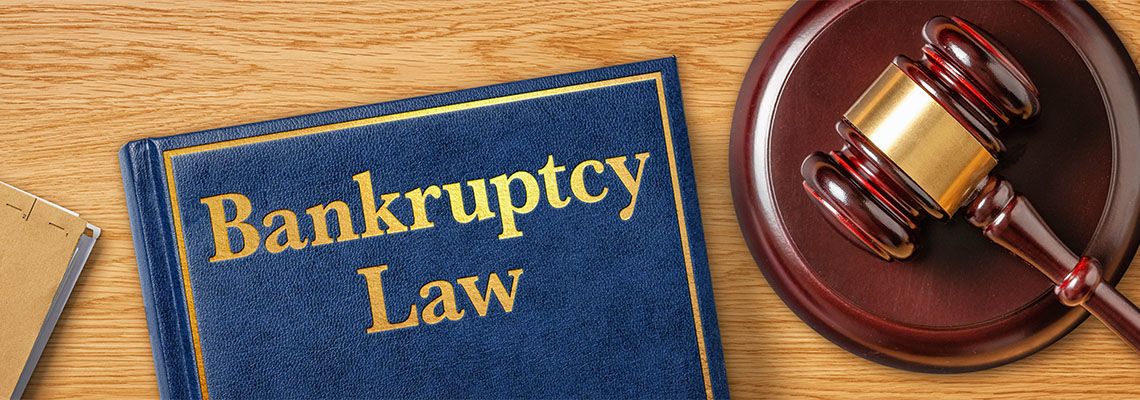
Preparing for Bankruptcy
Bankruptcy is among the promising options for individuals, families, and businesses going through financial distress to seek debt relief or a financial fresh start. However, filing for bankruptcy in California usually involves several complicated procedures. For this reason, it is important to understand your options and make adequate preparation before you file to avoid potential denials and other irrevocable errors.
At EH Law Group, we enjoy walking our clients through the entire bankruptcy process. Our seasoned California bankruptcy attorneys can help you determine whether bankruptcy is right for you, determine your eligibility, and advise you on how to prepare. We're proud to serve clients across San Mateo, San Francisco, Daly City, Oakland, South San Francisco, and Santa Clara County, California.
What to Do to Prepare for Filing Bankruptcy
If you have consulted with your attorney and decided to file for bankruptcy, the following are important tips:
Gather Your Financial Documents
Collect and document all financial records, including bank statements, credit reports, and details about ongoing lawsuits and court cases against you. Also, document your proof of income for the past six months and tax returns for the last two years.
File Necessary Tax Returns
It is vital to ensure that you have filed the necessary tax returns prior to your bankruptcy petition. Generally, filing for bankruptcy will not cancel your taxes. The bankruptcy court still expects you to be up to date with filing your tax returns. If not, the court could throw out your case.
Pay Off Necessary Bills
You have to continue paying for your necessary bills, such as your home loan, car payments, electricity bills, and utility. This will help avoid potential issues when you file your bankruptcy petition.
Stop Automatic Payments
Also, it is crucial to terminate all automatic payments, monthly subscriptions, and deductions to your bank account, credit cards, and post-dated checks. This will allow you to have enough funds to cover your essential living expenses and other crucial financial needs.
Document Debt Information Accurately
Also, you'll have to provide accurate documentation of your property, assets, income, debts, and liabilities. If the bankruptcy court notices any inaccurate information, your case might be thrown out.
Take Your Credit Counseling Course
Lastly, ensure that you take the required credit counseling and debtor education courses before and after filing your bankruptcy petition. If not, the court may deny your bankruptcy petition or discharge.
It is vital that you take these steps as soon as possible and prepare for your bankruptcy case accordingly. With this, you can expect a seamless and successful bankruptcy petition or discharge.
What Not to Do Prior to Filing
The following are some things you need to avoid before you file your bankruptcy petition:
Don't Use Protected Assets
Even in bankruptcy, you may still be able to keep your exempt assets, including your primary car, primary home, clothing, and household furnishings. Since the bankruptcy trustee won't sell these assets, you don't have to sell them either.
Don't Pay Dischargeable Debts
In addition, filing for bankruptcy will eliminate most of your general unsecured debts, such as credit card debts, medical bills, and personal loans. Therefore, you don't need to pay your dischargeable debts.
Don't Pay Debts with Retirement Funds
Also, your retirement accounts and assets are protected in bankruptcy. Hence, you don't have to pay your debts using your retirement funds. Moreover, paying debts with your retirement savings can reduce the amount you will have left when you retire.
Don't Move or Transfer Assets and Funds
However, it is a violation of the bankruptcy code to hide, sell, or transfer assets and money to friends, family members, or close relatives for safekeeping prior to filing bankruptcy. Doing this may cause the court to deny your bankruptcy discharge.
Don't Acquire New Debt
Also, avoid new debts between 70 and 90 days prior to filing your bankruptcy case. If the court discharges such debts, the creditor may file an "adversary proceeding," claiming that you acquired the debt without planning to pay it back.
Don't Wait For Creditors to Win a Court Judgment
Lastly, act fast and do not wait until a creditor wins a judgment before you file your bankruptcy petition. If the court issues a money judgment against you, you may find yourself in debt misery.
How Legal Counsel Can Help
According to The American Bankruptcy Institute, in California, there were 30,973 total bankruptcy filings in 2023. These individuals didn't go through bankruptcy alone, and neither should you. With more than 30 years of combined experience, our attorneys at EH Law Group can direct you through the complex procedures of preparing and filing for bankruptcy.
As your legal team, we can review your financial status, analyze your available debt relief options, and determine if bankruptcy is right for you. Also, we will help file your bankruptcy petition, represent you diligently during the court proceedings, create a strategic plan to protect your assets, settle your debts, and improve your finances.
When You're Ready to Talk to an Attorney, Talk to Us
Are you considering filing for bankruptcy? Contact us at EH Law Group today to set up a case evaluation with trusted bankruptcy lawyers. Our dedicated attorneys have the reliable advocacy and assistance you need to make intelligent decisions when preparing for bankruptcy. We're proud to serve clients across San Mateo, San Francisco, Daly City, Oakland, South San Francisco, and Santa Clara County, California.
